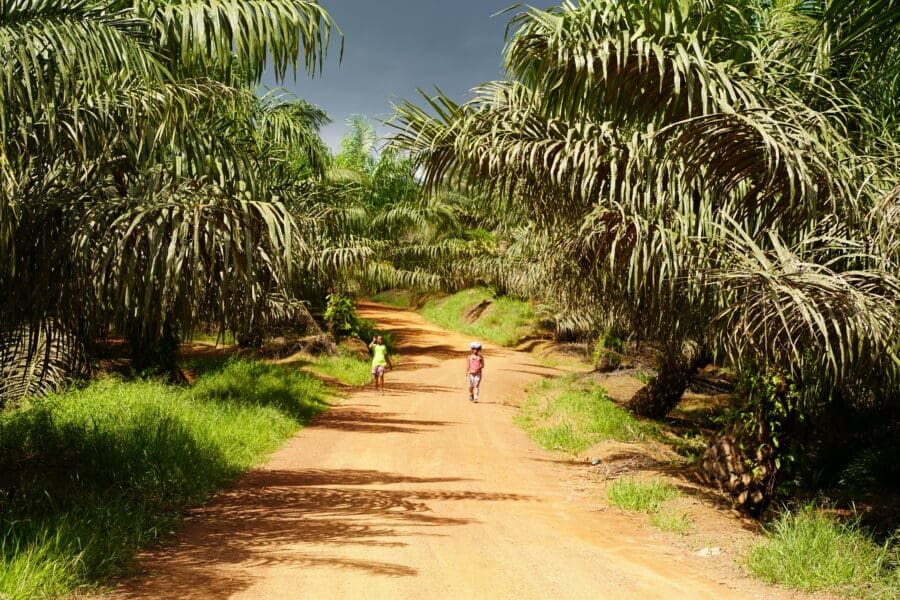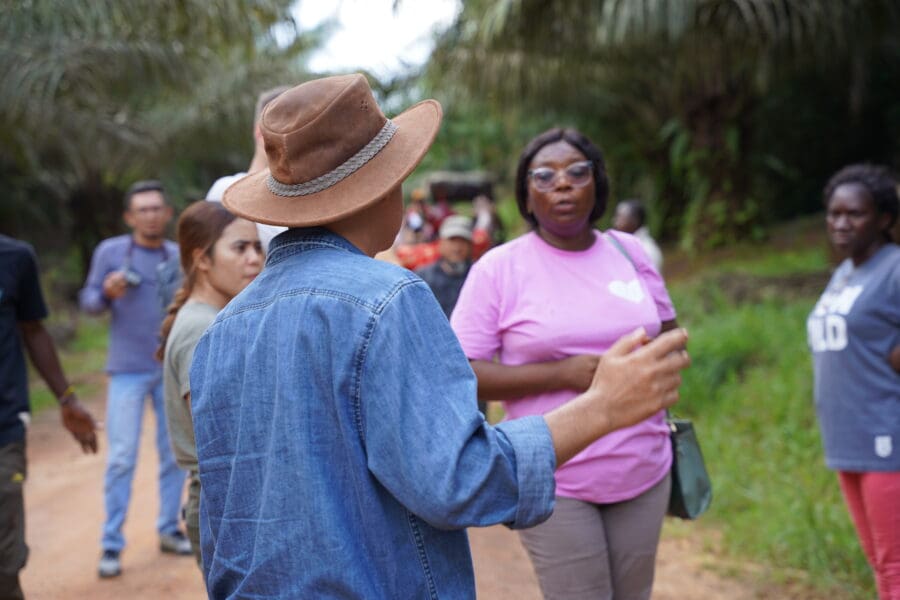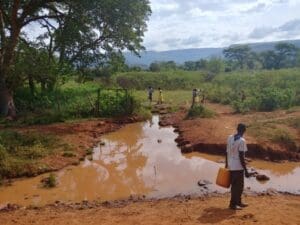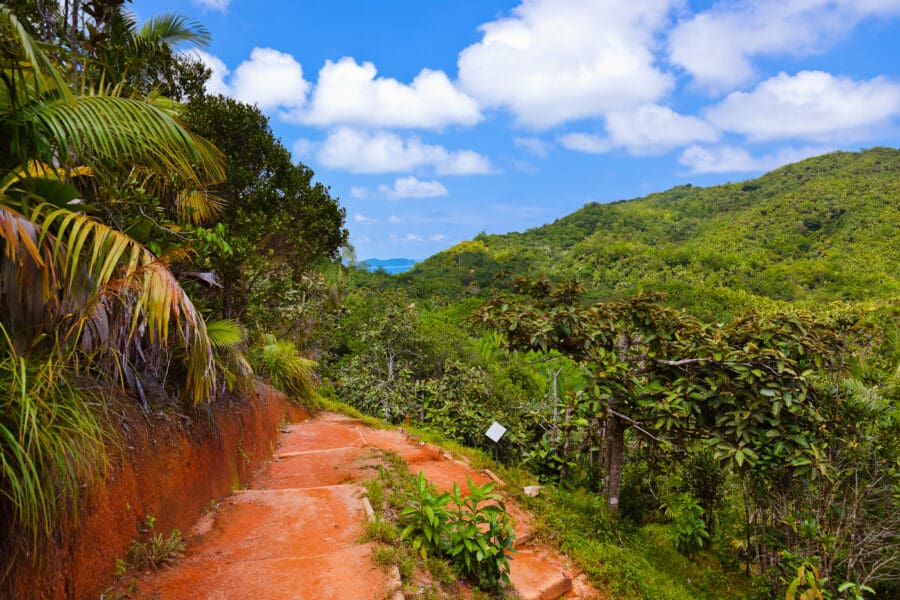
When members of the Indonesia-based AsM Law Office landed in Monrovia, Liberia this June, they had a two-fold agenda for their two week exchange with leaders of Liberian civil society.
Their first goal was to share lessons from their recent experiences in helping companies improve their human rights compliance in Indonesia’s oil palm sector. Equipped with more information, Liberia civil civil actors can better work with companies in their own burgeoning oil palm industry to reduce deforestation and conflicts, better corporate practice on the ground, and improve the well-being and prosperity of rural communities.
Indonesia currently produces almost half of the world’s palm oil – an ingredient used in everyday items from crackers and chocolate bars to lipstick and soaps. The sector occupies 40.5 million acres of Indonesia’s rich island lands and has been a powerful economic force in the country since 1960. Throughout history, large monoculture plantations – no matter what they produce – have caused deforestation, Indigenous land loss, and biodiversity harm in the lands they occupy. As a result, Indonesian civil society actors have important experience in community-led struggles for land rights and sustainability necessary for empowering Indigenous communities to benefit from the richness of their lands. Many communities in Indonesia are indeed benefitting from the palm oil industry today.

“Communities should benefit, not suffer, from the richness of their lands.”
Large scale oil palm production in Liberia took off in the 2010s, and today, four oil palm companies operate on a tenth of Liberia’s land. The sector has been at the root of conflict, human rights abuses, and shady business practices in Liberia. Civil society actors like Social Entrepreneurs for Sustainable Development (SESDev) and other members of the Civil Society Oil Palm Working Group (CSO-OPWG) are now looking for ways to bridge the gap between companies and communities involved in oil palm production in Liberia. As the leader of SESDev Mina Beyan put it, “Communities should benefit, not suffer, from the richness of their lands.”
RRI supported the June 2022 exchange of five Indonesian leaders and dozens of Liberian activists in Monrovia to discuss lessons learned from Indonesia and use them to resolve the challenges faced today in Liberia. The topic at hand was Community Based Monitoring, an approach developed by the Liberian-based CSO-OPWG and the Indonesian-based AsM Law Office, with support from RRI. CBM is a strategy for communities to collect and leverage their own data on the local environmental and social impacts of supply chains. Communities in Indonesia are piloting the approach, allowing for the communities, companies and governments to jointly monitor the impacts of land-based investments on Indigenous and local communities’ ancestral lands. The information from the community helps governments make more informed policy decisions and informs companies about their real impacts on the ground.
“Liberia needs a chamber that will help to mitigate conflict and develop policies about sustainability and human rights,” AsM leader Andiko told the Liberian outlet The Daylight. “You need a community business, NGO, finance, and partners to talk about how to make the palm oil industry better in your country,” he continued. “You need to increase the smallholders in Liberia. You need to have an inclusive business sector, build capacity and provide backup to join with the big economy in your country.”

James Otto, of Liberia’s Sustainable Development Institute (SDI), noted the need to understand the tools required to “move things from bad to good in other countries” brought about the global exchange in Monrovia.
“We wanted to understand what tools and approaches they are using. That gave rise to this exchange.”
As a part of the exchange, the group visited the site of an oil palm plantation in Grand Bassa County in central Liberia. The plantation occupies the site of the ancestral lands of the Jogbahn clan, which is made up of 12 communities. As it stands, seven of the Jogbahn communities resisted the expansion of the plantation into their lands. Five ceded their lands, and have since struggled to survive, having lost their land-based livelihoods.






